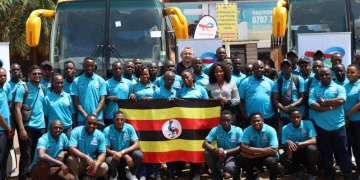
The majority of respondents in Uganda (78%) fear Covid-19 less in July than they did in March, a new survey Whitehead Communications shows.
Uganda registered its first case of Covid-19 on March 22, 2020, and instated lockdown measures in the same month. These developments were accompanied by a series of Presidential addresses and a significant increase in media coverage about the pandemic.
However, according to a survey conducted in July by Whitehead Communications, most Ugandans no longer follow the presidential and ministry of health directives on social distancing as it was at the start.
The majority (78%) of respondents in Uganda fear Covid-19 less in July than they did in March. Only 13% responded that they fear Covid-19 more in July than they did in March, according to their recollection.
“Ugandans are not all behaving the same in how seriously they apply public health directives like physical distancing, mask-wearing and hand washing. 35% of respondents report being “very serious” and 27% are “somewhat serious”, while 23% are “somewhat relaxed” and 14% are “very relaxed,” the survey says.
9% of respondents selected “Other” and provided open-ended answers to this question, which included: indifferent, don’t care, don’t know; consistent or never feared it; fearing poverty or security enforcers more than Covid-19; believing Covid-19 is a scam, hoax, doesn’t exist or just a money-making opportunity for leaders.
Whitehead Communications gathered 1,353 responses – or 1,182 after data cleaning – between the 6th and 15th of July, 2020, using a mixed methodology collecting results from a purposive sample both online and through phone calls.
“This report is intended to serve as a resource to decision-makers and the general public by providing research-based insights to inform public discussion and policy in response to Covid-19,” the report reads in part.
The survey comes amid the growing demand for government to lift the lockdown measures. On May 4, President Museveni started easing some of the lockdown measures by allowing shops selling general merchandise ,shopping malls and hardware shops to reopen.
He also permitted motor vehicle garages and workshops for metal fabrication and furniture to reopen provided the operators wear face masks. The President later allowed private cars and public transport also to resume after nearly three months of suspension. But schools, churches, mosques, bars, arcades, beauty salons, gyms and saunas have remained closed to date.











Discussion about this post